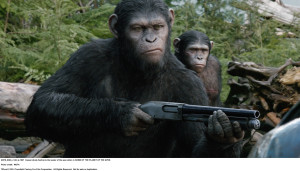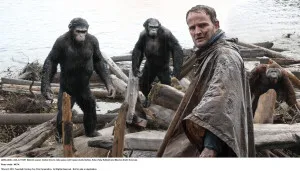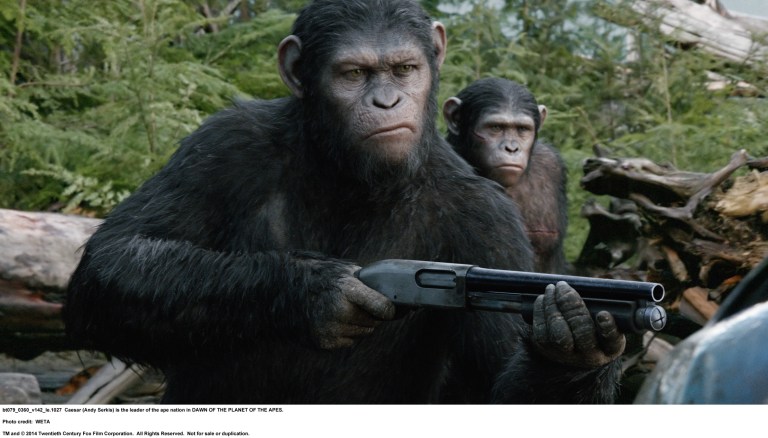
From the monkey suits in the 1968 classic “Planet of the Apes” to the CGI in the 2014 blockbuster “Dawn of the Planet of the Apes,” it’s clear that much like the primates in the newest “Apes” trilogy, special effects have evolved through time.
Sure, the apes in “Dawn” don’t have the societal organization that the apes in the original film did, but they have adopted the incredibly intelligent Caesar (Andy Serkis) as their leader. And in the 10 years since the end of the film’s predecessor, “Rise of the Planet of the Apes,” they’ve developed their own home — albeit a primitive one — in the woods. With a basic language and structure, the society of apes actually displays many parallels to early human civilization. Even shown using guns and mounted on horses, the primates see themselves traveling on a similar evolutionary track as we humans have.
From the instant the movie begins — heck, even just by looking at the movie poster — it’s clear that the differences between humans and apes will eventually bring the two species to war. But with that plot detail becoming so obvious early on, “Dawn” is a much darker and grittier film than “Rises,” with much of the film taking place in either the forest or a depleted human society rather than in the laboratories and residential neighborhoods seen in the first film of the trilogy.
Impressively enough, despite the differences, “Dawn” is able to pick up where “Rises” left off without being unrelatable due to the apes’ similarities to mankind. Part of the reason “Dawn” can pull this off so well is because of the astounding special effects and incredible acting.

The CGI throughout the movie is practically flawless. Human-ape interaction looks seamless, with the exception of an extra awkwardly flailing while being carried away by a menacing beast. This then opens the door for Serkis to deliver a mind-blowing portrayal of Caesar yet again. Sure, Jason Clarke and Gary Oldman deliver good performances as well, but in an ape-led movie, the ape leader is the one who really steals the show. Caesar’s intimidating growls and weak speaking abilities make it clear that he is certainly of another species. However, Serkis incorporates compassion and care — such as when Caesar comforts his ill wife — which bring an element of human nature to the film.
And if “Dawn” really teaches audiences anything, it’s that what we refer to as “human nature” really isn’t exclusive to humans.
Perhaps it’s just nature.
